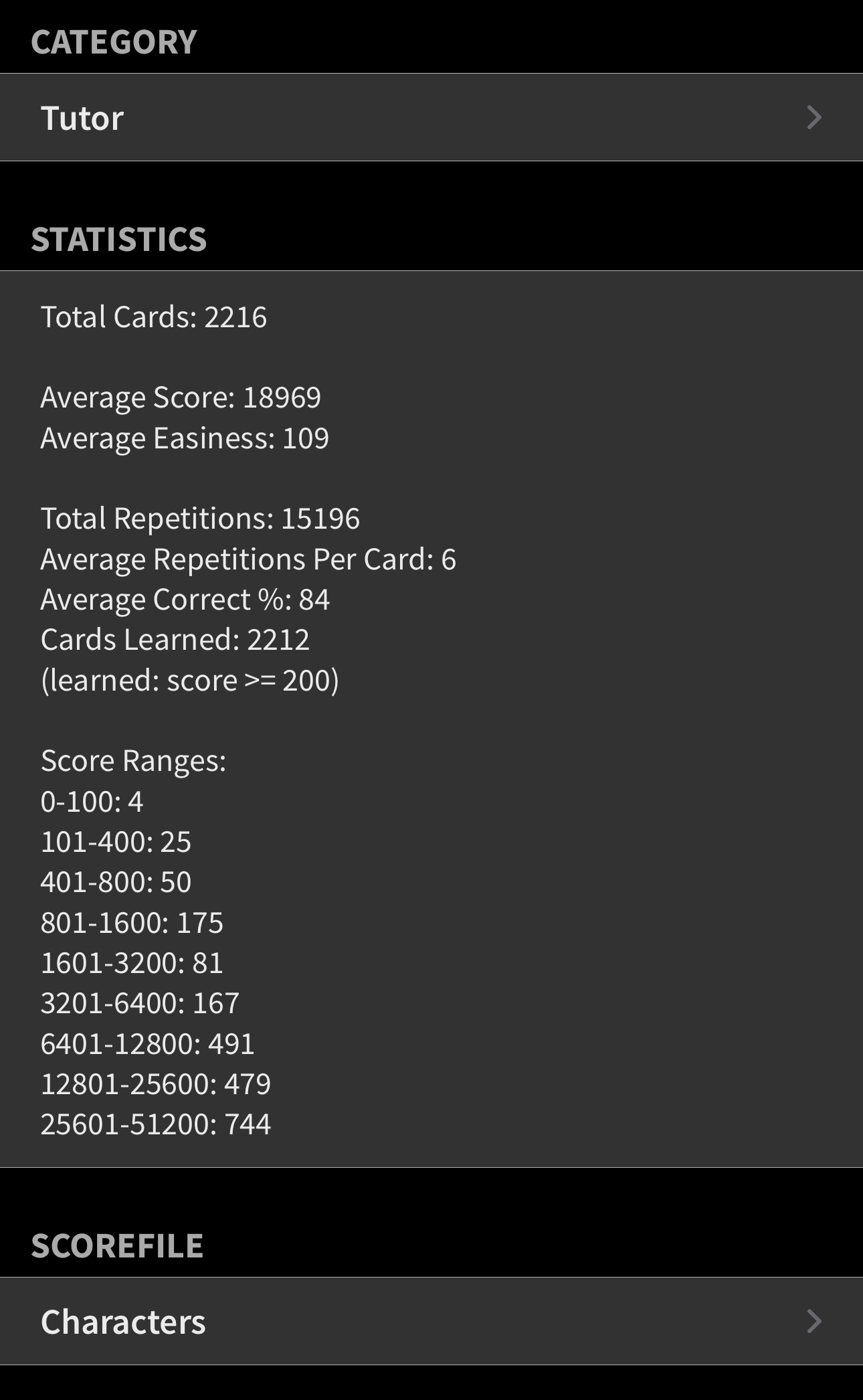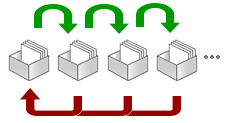How to Supercharge Your Memory
Explaining why I was siktengmsikgong despite 12+ years of Chinese school
Throughout my K-12 school years, my parents enrolled me in a weekly Saturday morning Cantonese school. The learning style mirrored how native speakers would learn Chinese. We were first presented with a literary work such as an ancient parable or a Tang dynasty poem, and then moved to discussion over new words, grammar points, and the moral of the story. Occasionally we practiced our speaking ability by mimicking the teacher's pronunciation. Exams took the form of dictation-style tests, where we transcribed what the teacher said. Sadly, I can confidently declare that the only knowledge I gained is reading and writing my own Chinese name, numbers 1-10, and basic characters like 我你上下.
So what exactly went wrong? The truth is, even though I was "learning", I was not able to retain anything substantial. As soon as I finished the exam or textbook, the content began to slowly fade from memory as we moved onto the new material. Maintaining fluency in a non-native language, especially in an environment where it isn't commonly spoken, demands consistent daily practice, review, and application of vocabulary. There are many ways to practice Chinese - conversing with parents, watching movies or TV shows, listening to songs, etc. Although I engaged in these activities sporadically in my childhood and beyond, it was not until recently when I incorporated flashcards with the SRS methodology into my daily routine that I noticed significant progress in learning Chinese.
Flashcards serve as an effective way for memorizing and recalling material. During my school days, I recall creating them over various subjects to prepare for exams. Creating your own deck of cards, as opposed to relying on premade ones, also brings huge benefits as well. For studying Chinese, the challenge lies in how to maximize the efficiency of our review sessions. Should I study the hard words? What if I forget the easy words again? I don't have enough time to review all my cards - which ones should I focus on first? The answer to these problems is the SRS methodology.

Spaced repetition system (SRS) is a technique that aims to optimize the brain's ability to retain information. It strategically divides your flashcard deck into small chunks based on the difficulty level - prioritizing the words you find difficult first in the queue, while pushing the easier words further back. The system will track your performance (correct:incorrect) for each card, personalizing each review session similar to having a private tutor at hand. The most significant benefit of SRS lies in its awareness of the optimal timing for revisiting material, automatically rescheduling cards to align with our brain's tendency to forget. Using this technique I finally began to retain what I was learning from outside sources like textbooks or TV shows. You can read more about the methodology here.
My choice of software for flashcards plus SRS is Pleco. Pleco is a supercharged Chinese to English dictionary. It has many features such as audio pronunciations, example sentences, stroke order, OCR, and more. However, the feature I use the most is the flashcards component. The seamless integration between the dictionary and flashcards really attracted me - I could quickly look up words I did not know, create a flashcard out of it, and add it to my daily practice. It also has built-in SRS settings that can be customized to your preferences, i.e. number of cards per review session, test type such as fill-in-the-blanks or multiple-choice, and more. For iOS users, it is worth noting you will need to pay for the flashcard module ($9.99 at the time of this writing). I personally recommend the basic bundle since it is more bang for your buck. If you need a free alternative to practice flashcards with SRS, Anki is a strong contender.

Maintaining fluency in a non-native language like Chinese demands daily practice. Flashcards offer a powerful solution to get lasting results that can be easily incorporated into any daily routine. With flashcards and SRS, I began to slowly expand my foundation of words and no longer worry about wasting time relearning previously studied words. The SRS technique can be extended to learn other foreign languages or any material you need to memorize in general. If you find yourself forgetting words you just learned or want a quick way to apply your knowledge daily, consider giving flashcards and SRS a try.
Looking Ahead
“Fluent Forever” by Gabriel Wyner - A language learning book I wish I read before ever learning Chinese. This book aims to empower learners to take control of their language learning journey and achieve fluency efficiently.
Apps for learning Chinese recommendations and which ones I still use today.
Got any feedback or suggestions?
Best,
Eric




Hey Eric. Thanks for inspiring me to start something. I don't know what yet, but thank you for your sharing!